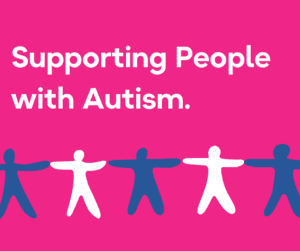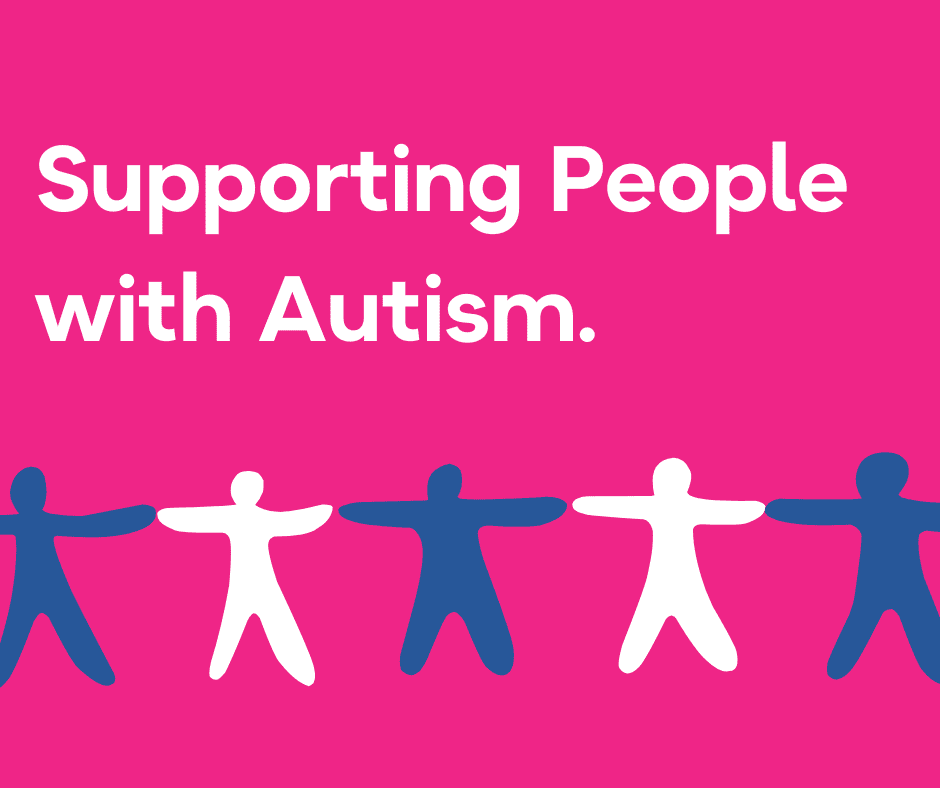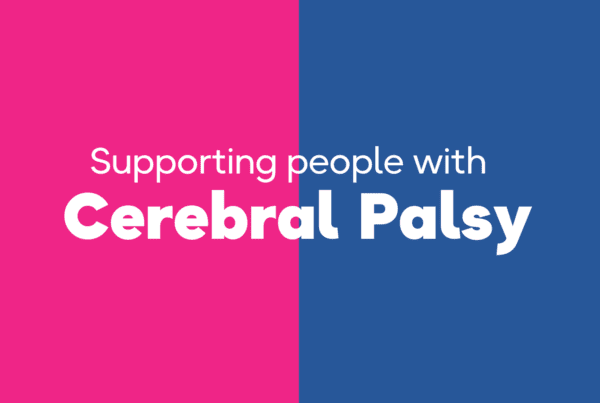Supporting People with Autism.
This article is based on information from the National Autistic Society and the NHS
.
What is Autism?
Autism is a lifelong developmental disability or learning difficulty that affects how people experience, communicate, and interact with the world around them. Autism is a very wide spectrum, and it affects individuals in different ways. More than 1 in 100 people are on the autism spectrum, and there are more than 700,000 autistic adults and children in the UK.
What causes Autism and can it be cured?
There is no clear cause for Autism, however, there are theories and some evidence that suggest that it may be caused by genetics or environmental factors that affect the development of the brain. For example, if an individual’s mother has Autism, there is a chance their child or children could also have Autism.
At present, there is no cure for autism. There is great emphasis on destigmatising Autism as many still see it as an illness or a disease. While there is no cure, there are ways to support people living with Autism to enable them to live the life they would like.
How can I know if someone has Autism?
You cannot tell that someone is Autistic just by looking at them, and you should never make assumptions. A clinical professional or local Autism team’s assessment is the only way to clearly obtain a diagnosis.
There are Autistic traits that you may notice in an individual. The main signs of Autism include –
- Trouble with social interaction and situations. Autistic people can experience difficulty with interpreting both verbal and non-verbal communication. Some Autistic people are ‘non-verbal’ which means they are unable to, or struggle to communicate verbally; while others have very good language skills but can struggle to understand things like sarcasm or someone’s tone of voice. This can mean taking things literally and not understand abstract concepts, needing extra time to process information or answer a question, or repeating what others say to them – this is called ‘Echolalia’.
- Sensory issues. Autistic people may experience over or under sensitivity to sounds, touch, tastes, smells, light, colours, temperatures, or pain. For example, they may find background music in a shop or restaurant unbearably loud and frustrating, while others who do not have Autism tend to block this out. This can cause anxiety or even physical pain.
- Behaviours that challenge. Autistic people can have episodes of meltdowns and shutdowns. A meltdown is an intense response to an overwhelming situation. Some Autistic people tend to get overwhelmed easily and this can cause them to temporarily lose control of their behaviour. This loss of control can be expressed verbally by shouting, screaming, or crying, or physically by being physically violent or lashing out. Sometimes they can express both. A shutdown is the opposite to a meltdown. While it is also caused by being overwhelmed, the person will not lose their temper physically. Instead, they will usually go silent and not want to talk to anyone – just because they are not losing their temper, it doesn’t mean this isn’t as difficult for them as a meltdown is.
How can I support someone that has Autism?
As people with Autism are affected in different ways, they will have different support needs. It is difficult to give a straight answer to ‘How can I support someone that has Autism?’ because the spectrum is so diverse. Engaging with your local services who will assess their needs on a case-by-case basis can advise and assist in the procurement of support.
Some individuals need little or no support, whereas others may need help from a parent or carer every day. If you support someone with Autism, you need to remember a few things:
- Understand that every individual is unique, with exclusive abilities and capabilities.
- Establish the individual’s own experience of Autism if you are caring for a specific person.
- Avoid making assumptions.
- Support positive risk taking.
- Compliment them often.
- Comfort them when they are distressed.
- Take interest in their passions and encourage them to grow.
- Listen to them and ask them for their opinion.
- Maintain consistent and calm behaviour.
It is vital to use positive language when referring to Autism, as many Autistic individuals see their Autism as a key part of who they are.
Consider whether or not the person you care for has the capacity to make decisions for themselves. If you have concerns about capacity, you can seek help from a GP or other professional who can conduct a two-stage diagnostic test to assess the individual. However, you have to remember that you should always assume that someone has capacity unless it is proven otherwise.
If you need to access local support, please refer to the services below (these services are based in Devon and Cornwall):
Plymouth Autism Spectrum Service (part of Livewell Southwest) 01752 435502
Derriford Autism Service (Derriford Hospital Plymouth) 01752 432134
Autistic Adults in Plymouth 07429 900530
Cornwall Adult’s Autism Partnership 01872 273501
Independent Cornwall Autism Network independentcornwallautismnetwork@outlook.com
Cornwall Council Autism Team 01579 3411
Southwest Autism Devon infoswautism@gmail.com
National Autistic Society Branches (autism.org.uk) – click the link to find your local branch
The A Team Devon 01626 912695



